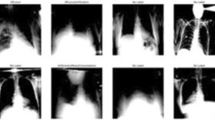Abstract
The growing use of machine learning in healthcare demands models that not only predict well but clearly explain their reasoning. Neuro-fuzzy classifiers combine neural networks and fuzzy logic for accurate yet interpretable modeling. However, high-dimensional medical data challenges comprehension. This study presents techniques to distill neuro-fuzzy classifiers down to their most essential components for enhanced interpretability. Recursive feature elimination is employed, iteratively removing the least contributory features according to classifier weights. On a breast cancer prognosis task, these methods significantly reduce features to the minimal set necessary for strong accuracy. The pruned neuro-fuzzy classifier demonstrates competitive prediction with increased transparency through an intuitive rule-based structure relying on only the most critical inputs. Feature reduction thus holds promise for optimizing the balance between predictive capacity and comprehensive explanations in medicine. However, challenges remain in scaling these methods to even higher-dimensional data like medical images while retaining accuracy. Future work should explore the effects of different criteria for ranking feature importance beyond classifier weights. Overall, this study provides an initial demonstration of how feature reduction techniques can produce simplified neuro-fuzzy classifiers more amenable to clinical implementation, but continued research is needed to extend these approaches to complex real-world medical data. Distilling machine learning models down to their most essential components will be critical for trust and adoption of artificial intelligence in high-stakes healthcare applications.
Access this chapter
Tax calculation will be finalised at checkout
Purchases are for personal use only
Similar content being viewed by others
References
Kourou, K., Exarchos, T.P., Exarchos, K.P., Karamouzis, M.V., Fotiadis, D.I.: Machine learning applications in cancer prognosis and prediction. Comput. Struct. Biotechnol. J. 13, 8–17 (2015)
Chen, J.H., Asch, S.M.: Machine learning and prediction in medicine—beyond the peak of inflated expectations. N. Engl. J. Med. 376(26), 2507 (2017)
Nichols, J.A., Herbert Chan, H.W., Baker, M.A.B.: Machine learning: applications of artificial intelligence to imaging and diagnosis. Biophys. Rev. 11(1), 111–118 (2019)
Wei-Ning, W., Ying-Lin, Y., Sheng-Ming, J.: Image retrieval by emotional semantics: a study of emotional space and feature extraction. In: 2006 IEEE International Conference on Systems, Man and Cybernetics, vol. 4, pp. 3534–3539 (2006)
Grégoire, M.: On layer-wise representations in deep neural networks. Ph.D. dissertation, Technische Universität, Berlin (2013)
Paredes, S., Henriques, J., Rocha, T., Valente, F., Carvalho, P., Morais, J.: Interpretable and personalized CVD risk assessment: innovative approaches. In: European Journal of Clinical Investigation, vol. 51, p. 97 (2021)
Antoniadi, A.M. et al.: Current challenges and future opportunities for XAI in machine learning-based clinical decision support systems: a systematic review. Appl. Sci. 11(11) (2021)
Petkovic, D., Ab Hamid, S.H., Cojbasic, Z., Pavlovic, N.T.: Adapting project management method and ANFIS strategy for variables selection and analyzing wind turbine wake effect (Retraction of Vol. 74, P. 463, 2014). Springer One New York Plaza, Suite 4600, New York, NY, United States (2020)
Guillaume, S.: Designing fuzzy inference systems from data: an interpretability-oriented review. IEEE Trans. Fuzzy Syst. 9(3), 426–443 (2001)
Jang, J.S.R.: ANFIS: adaptive-network-based fuzzy inference system. IEEE Trans. Syst. Man Cybern. 23(3), 665–685 (1993)
Petković, D., Pavlović, N.T., Ćojbašić, Ž: Wind farm efficiency by adaptive neuro-fuzzy strategy. Int. J. Electr. Power Energy Syst. 81, 215–221 (2016)
Shimizu, S. et al.: DirectLiNGAM: A direct method for learning a linear non-Gaussian structural equation model. J. Mach. Learn. Res. 12, 1225–1248 (2011)
Shimizu, S., Hoyer, P.O., Hyvärinen, A., Kerminen, A.: A linear non-gaussian acyclic model for causal discovery. J. Mach. Learn. Res. 7, 2003–2030 (2006)
Bache, K., Lichman, M.: UCI Machine Learning Repository (2013)
Devarriya, D., Gulati, C., Mansharamani, V., Sakalle, A., Bhardwaj, A.: Unbalanced breast cancer data classification using novel fitness functions in genetic programming. Expert Syst. Appl. 140, 112866 (2020)
Acknowledgement
This work was supported by Thainguyen University of Technology.
Author information
Authors and Affiliations
Corresponding author
Editor information
Editors and Affiliations
Rights and permissions
Copyright information
© 2023 The Author(s), under exclusive license to Springer Nature Switzerland AG
About this paper
Cite this paper
Nguyen, TT., Hien, D.T., Nguyen, TL. (2023). Feature Reduction for Interpretability of Neuro-Fuzzy Classifier. In: Nghia, P.T., Thai, V.D., Thuy, N.T., Son, L.H., Huynh, VN. (eds) Advances in Information and Communication Technology. ICTA 2023. Lecture Notes in Networks and Systems, vol 847. Springer, Cham. https://doi.org/10.1007/978-3-031-49529-8_20
Download citation
DOI: https://doi.org/10.1007/978-3-031-49529-8_20
Published:
Publisher Name: Springer, Cham
Print ISBN: 978-3-031-49528-1
Online ISBN: 978-3-031-49529-8
eBook Packages: Intelligent Technologies and RoboticsIntelligent Technologies and Robotics (R0)




